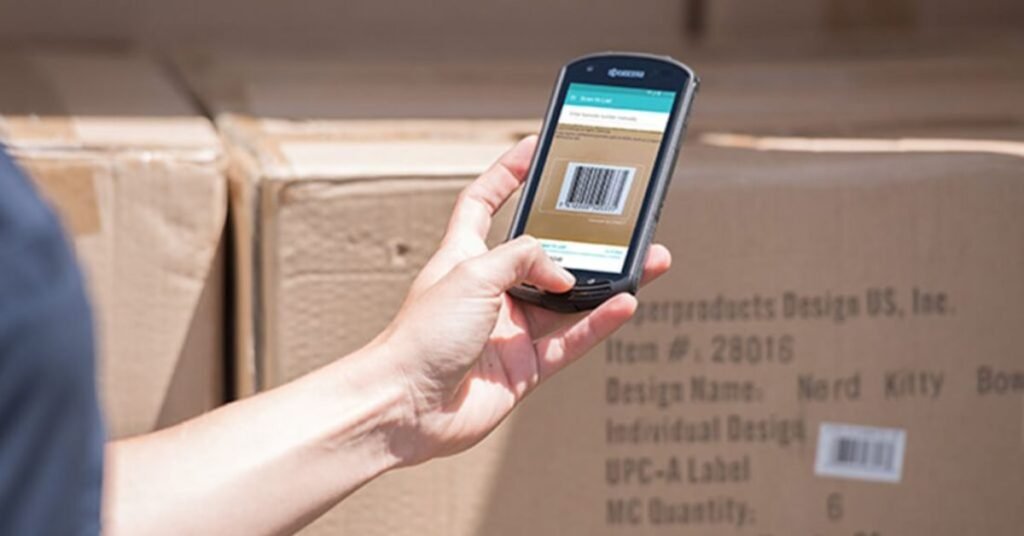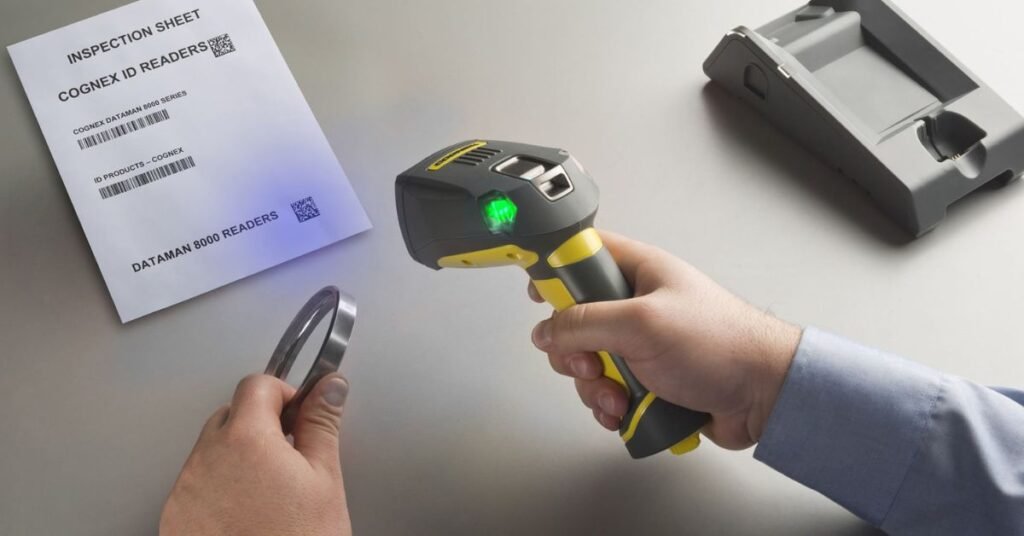Did you know that portable data terminals with barcode scanners are revolutionizing the way businesses operate in the USA? These powerful devices not only enhance efficiency but also improve accuracy in various industries.
In this ultimate guide, we will explore everything you need to know about portable data terminals with barcode scanners and their applications. Whether you’re in retail, warehousing, healthcare, manufacturing, or field service, this guide will help you understand the benefits and functionalities of these versatile tools.
What is a Portable Data Terminal with a Barcode Scanner?
Portable data terminals (PDTs) with barcode scanners are handheld devices that combine the power of a computer with the efficiency of barcode scanning technology. These devices are designed to provide mobility and portability while offering real-time data access and streamlined operations.
With a PDT, users can easily capture, store, and transmit data, making it an essential tool in today’s fast-paced business environment. There are three main types of portable data terminals:
Handheld PDTs
Handheld PDTs are the most common type and offer flexibility in various industries. They are lightweight, easy to use, and provide mobility for workers who need to move around while scanning barcodes. Handheld PDTs often come with advanced features like touchscreens, wireless connectivity options, and long battery life.
Wearable PDTs
Wearable PDTs are designed to be worn on the arm or wrist, allowing for hands-free operation. These devices are especially useful in environments where workers need to have both hands available for tasks while still accessing data and scanning barcodes.
Wearable PDTs are commonly used in warehouses, distribution centers, and manufacturing facilities where productivity and efficiency are paramount.
Vehicle-mounted PDTs
Vehicle-mounted PDTs are rugged devices designed for use in vehicles like forklifts, trucks, or other industrial vehicles. These robust devices are built to withstand harsh environments and provide uninterrupted data access and barcode scanning capabilities. Vehicle-mounted PDTs are commonly used in logistics, transportation, and manufacturing industries.
Key Features of Portable Data Terminals with Barcode Scanners
Mobility and Portability
One of the key features of portable data terminals with barcode scanners is their mobility and portability. These devices allow workers to move freely within their work environments, eliminating the need for fixed workstations. Whether it’s scanning barcodes on products in a warehouse or taking inventory on the retail floor, PDTs enable users to access data and perform tasks on the go.

In retail, for example, employees can use handheld PDTs to scan barcodes, check prices, and provide real-time inventory information to customers. This mobility improves customer service and increases efficiency by eliminating the need for employees to run back and forth to fixed terminals.
Barcode Scanning Technology
Barcode scanning technology is at the core of portable data terminals. These devices utilize different types of barcode scanners, including laser, CCD (Charge-Coupled Device), and imager scanners.
Laser scanners use a laser beam to read barcodes. They are ideal for scanning barcodes from a distance and are commonly used in retail, logistics, and healthcare industries.
CCD scanners use an array of light sensors to capture barcode information. They are cost-effective and suitable for close-range scanning, making them popular in applications like inventory management and point-of-sale operations.
Imager scanners capture barcode images using a camera-like device. They can read barcodes from various angles and even decode damaged or poorly printed barcodes. Imager scanners are commonly used in industries that require high accuracy and durability, such as warehousing and manufacturing.
Connectivity Options
Portable data terminals with barcode scanners offer various connectivity options to ensure real-time data transmission and seamless integration with existing systems. The most common connectivity options include:
Wi-Fi: Wi-Fi connectivity allows PDTs to connect to a local network, enabling real-time access to cloud-based applications and databases. This feature is particularly useful in large warehouses or retail environments where data synchronization and communication play a crucial role.
Bluetooth: Bluetooth connectivity enables wireless communication between the PDT and other devices like printers or mobile computers. It is commonly used in applications where printing labels or transferring data to other devices is necessary.
Cellular: Cellular connectivity allows PDTs to connect to the internet using a cellular network. This feature is beneficial for field service workers who need to access real-time data from remote locations where Wi-Fi may not be available.
Durability and Ruggedness
Portable data terminals with barcode scanners are built to withstand demanding environments. They are designed with ruggedness in mind to ensure durability and longevity. These devices are often subjected to drops, shocks, and exposure to dust, water, and extreme temperatures.
Rugged PDTs are tested against industry standards such as IP ratings (Ingress Protection) and MIL-STD-810G to ensure their ability to withstand harsh conditions. In industries like warehousing, logistics, and manufacturing, where PDTs are constantly exposed to rough handling and environmental hazards, rugged devices are essential. They minimize downtime and reduce repair and replacement costs, ultimately improving productivity and efficiency.
Battery Life
Long battery life is crucial for portable data terminals to ensure uninterrupted operation throughout the workday. PDTs are designed to last a full shift or even longer without requiring frequent recharging. Battery life can vary depending on the device and usage patterns. However, advancements in battery technology have significantly extended the operational time of PDTs.
To maximize battery life, users can adopt power management strategies such as adjusting screen brightness, disabling unnecessary features when not in use, and implementing sleep or idle modes during periods of inactivity. These practices help extend the battery life and ensure PDTs are always ready for use.
Applications of Portable Data Terminals with Barcode Scanners in Various Industries
Portable data terminals with barcode scanners have numerous applications across various industries, revolutionizing how businesses operate. Let’s explore some of the key applications in different sectors:
Retail
In the retail industry, portable data terminals with barcode scanners are widely used for inventory management and point-of-sale operations. Retail employees can easily scan barcodes to update inventory, check pricing, and process transactions. These devices provide real-time access to product information, ensuring accurate stock levels and improving customer service.

Case Study: A large retail chain implemented portable data terminals with barcode scanners to streamline their inventory management process. By scanning barcodes, they eliminated manual data entry errors and improved inventory accuracy by 20%. The real-time data access allowed them to make informed decisions about reordering and restocking, resulting in reduced stockouts and increased customer satisfaction.
Warehousing and Logistics
In warehousing and logistics, portable data terminals with barcode scanners revolutionize inventory tracking and streamline operations. Workers can scan barcodes to receive, pick, and ship products accurately and efficiently. Real-time data transmission provides visibility into stock levels, reduces errors, and enables better planning and optimization of warehouse processes. Case Study:
A logistics company implemented wearable PDTs with barcode scanners for their order picking process. By using hands-free devices, workers increased their picking speed by 25% while maintaining accuracy. The real-time data synchronization reduced errors and allowed for immediate order updates, improving customer satisfaction.
Healthcare
Portable data terminals with barcode scanners play a crucial role in healthcare settings, enhancing patient identification, medication administration, and record management. Healthcare professionals can use PDTs to scan patient wristbands and medication barcodes, ensuring accurate and safe administration. Real-time data access improves efficiency, reduces errors, and enhances patient safety.
Case Study: A large hospital implemented portable data terminals with barcode scanners for medication administration. By scanning barcodes on medication packages and patient wristbands, they reduced medication errors by 40%. The real-time data synchronization with electronic health records improved workflow efficiency and enhanced patient care.
Manufacturing
In the manufacturing industry, portable data terminals with barcode scanners enable real-time tracking of production processes, quality control, and inventory management. Workers can scan barcodes on products, components, and work orders, ensuring accurate data capture and reducing errors. This improves process visibility, minimizes downtime, and enhances overall operational efficiency.
Case Study: A manufacturing company implemented vehicle-mounted PDTs with barcode scanners in their assembly line. By scanning barcodes on components and tracking production progress in real-time, they reduced assembly errors by 30%. The increased process visibility allowed them to identify bottlenecks and optimize production flow, resulting in improved productivity.
Field Service
Field service technicians can benefit significantly from portable data terminals with barcode scanners. These devices enable real-time data entry, retrieval, and asset management in remote locations. Field service workers can scan barcodes on equipment, update service records, and access relevant information on the go. This improves efficiency, reduces paperwork, and ensures accurate data capture.
Case Study: A field service company adopted handheld PDTs with barcode scanners to streamline their equipment maintenance process. By scanning barcodes on equipment, technicians reduced data entry time by 50% and eliminated manual errors. The real-time synchronization with the central system enabled better planning and scheduling of maintenance tasks, resulting in improved customer satisfaction.
How to Choose the Right Portable Data Terminal with Barcode Scanner
Choosing the right portable data terminal with a barcode scanner for your business is essential to maximize efficiency and ensure compatibility with your operations. Consider the following factors when making your decision:
Assess Your Needs
Before purchasing a portable data terminal, assess your specific needs and requirements. Consider the tasks you need to perform, the environment in which the device will be used, and the volume of data you will be handling. Ask yourself questions such as:
What types of barcodes will you be scanning?
Will the device be used indoors or outdoors?
Do you require additional features like GPS or camera functionality?
Answering these questions will help you identify the features and specifications that are most important for your business.
Budget Considerations
Portable data terminals with barcode scanners come in a range of prices, depending on the features, durability, and brand. Consider your budget and the long-term benefits of investing in a higher-quality device. Whil
Final Thoughts
Portable data terminals with barcode scanners have revolutionized the way businesses operate in the USA. These versatile devices offer mobility, real-time data access, and streamlined operations, making them essential tools in various industries. Whether it’s retail, warehousing, healthcare, manufacturing, or field service, portable data terminals with barcode scanners provide numerous benefits, including increased efficiency, improved accuracy, and cost savings.
By integrating barcode scanning technology into portable devices, businesses can enhance productivity, minimize errors, and make informed decisions based on real-time data. The key features of these devices, such as mobility, connectivity options, durability, and long battery life, ensure seamless operations in challenging environments.
From inventory management and point-of-sale operations to patient identification and production tracking, portable data terminals with barcode scanners have proven to be invaluable tools. The case studies mentioned throughout this guide demonstrate the tangible benefits that businesses have experienced by adopting these devices.
When choosing a portable data terminal with a barcode scanner, it’s crucial to assess your specific needs, consider budget considerations, and ensure compatibility with existing systems. By selecting the right device, you can optimize efficiency, improve accuracy, and ultimately drive the success of your business.
In conclusion, portable data terminals with barcode scanners have become indispensable tools in today’s fast-paced business world. Embracing this technology enables businesses in the USA to stay competitive, enhance customer satisfaction, and achieve operational excellence.
So, whether you’re a retailer, a warehouse manager, a healthcare professional, a manufacturer, or a field service technician, it’s time to explore the remarkable benefits that portable data terminals with barcode scanners have to offer.
Note: The above conclusion provides a summary of the main points discussed in the article and emphasizes the importance of portable data terminals with barcode scanners in various industries. It encourages readers to consider adopting this technology to optimize their business operations.

